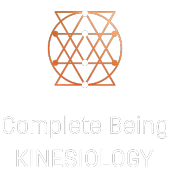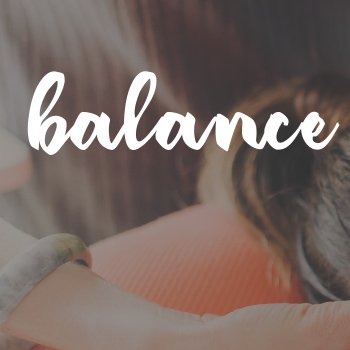
Creating awareness: Art of Listening.
I recently embarked on a new venture, studying food & nutrition wellness coaching at Nature Care College. I’m excited as it loops me back into one of my passions, nutrition. It also allows me to leverage my existing coaching skills obtained in 10+ years in the corporate world and 7+ years in my kinesiology clinic. As part of the wellness coaching unit, I’m enjoying welcome reminders about the value of communication – with a vital part being attributed to listening. Why is listening so important?
Take yourself back to a conversation which you’ve really enjoyed, what made it special?
Whether we are conscious of it or not, a key element of a feel-good conversation is when we feel truly listened to. When we feel heard by the other person, we feel respected and understood. It creates an environment of trust. We feel safe, we engage and we open up.
Take a moment to think of someone that you like to be around e.g. within your family, social network or, at work. Chances are, they are likely a gifted listener, someone who pays attention to you and what you say, who doesn’t talk only about themselves and doesn’t automatically go into solution mode to tell you what to do. They don’t judge, they ‘simply’ listen.
It sounds simple, right? Yet, active listening is not as easy as it may seem. We may think we are a good listener but, are we? Let’s look at how we can gauge this.
Signs of superficial listening.
In conversations, have you done any of the following (or have noticed your conversation partner doing some to you):
- Impatiently waited for the other person to finish so you can have your say?
- Started thinking about what you want to say next instead of fully focusing on what they say?
- Finished sentences for them as you thought you knew what they were going to say?
- Gone into solution mode right away and eagerly offered what you think?
- Been reactive or defensive, taken things personally and let your feelings get in the way?
- Judged what the other person is saying and started forming an opinion that wasn't necessarily real?
- Felt uncomfortable when the other person gets emotional and then deflected by talking about what you are comfortable with = you?
- Started sharing your own experience and taking the attention away from the other person?
- Got easily distracted and had difficulty following what the other person is saying?
- Lost interest in the conversation and tuned out or started thinking about something totally different?
- Checked your phone and/or haven’t stopped looking at your phone?
- Talked to a large extent i.e. dominated the conversation?
- Been literally caught out by the other person saying ‘are you even listening’ or ‘you are not hearing me’?
How did you go, did any of these resonate? (If you were at the receiving end, how did it make you feel?)
Rest assured, you are not alone, we all have experienced one or more of these scenarios and often, we are not even consciously aware of it. There are many aspects that impact our ability to stay alert, focused and attentive in a conversation. How well we listen may be diminished if we had a tough day, we feel tired or stressed or we are not in the mood for a conversation in the first place (this is why it is recommended to have a deep and meaningful conversation with your significant other or loved one only when both parties feel ready and agree to it).
The good news is that while listening - as I like to refer to it – is an art, it is also a skill that can be learned. Why is it so important? It builds trust, it connects us to others, allows us to understand and be understood, it supports building better relationships and hopefully, transform some shaky ones (if we choose to).
Have you heard of conversational narcissism?
Author Celeste Headlee describes in her article The Mistake I Made with My Grieving Friend how she noticed that whenever someone was telling her a story of loss and struggle, she would respond with a story of her own experience. Once she observed the other person’s response, she realised that her attempt to show empathy - by demonstrating that she knows what the other person is going through - was in fact not received this way. She realised that instead of hearing the person and acknowledging what they are going through, she made them listen to and acknowledge herself.
- Conversational narcissism – as defined by Sociologist Charles Derber: tendency to bring oneself into a conversation, the need to do most of the talking and taking over a conversation (note this can be subtle and, unconscious)
Derber explains that there are two kinds of responses in conversations:
- Shift response – shifts attention back to oneself
- Support response – supports the other person’s story or comment
For example - Person A: “I can’t believe how busy I am at the moment”.
- Shift response by Person B: “Me too. I am absolutely exhausted.”
- Support response by Person B: “Why is that - what do you have on your plate?”
Which response would you prefer? I found this rather insightful as I realised how often I use shift responses at home. I believe that creating awareness of these type of responses and defining our listening skills can be extremely helpful in our day-to-day interactions and beneficial to the quality of our life.
Level 1 - Passive or internal listening
In short – the spotlight is on me.
With this type of listening the awareness is on me i.e. it is all about me, while I may listen to the words of the other person, the (internal) attention is on me – what does it mean to me, how do I relate to what is being said, what are my feelings, my judgements, my views etc.
This type of listening supports us in understanding ourselves and what's going on around us, it helps with decision making, when we gather information or need to work things out for ourselves.
Level 2 - Active or Focused Listening
In short – the spotlight is on the other person.
At this level the focus and awareness is on the other person. We listen not only to the words they say, we take in non-verbal cues like body language or facial expressions. By doing so we are able to sense how the person feels and what they may not necessarily say i.e. what is behind the words and what is not explicitly expressed yet equally important. We bring empathy to the conversation and leave our agenda and thoughts aside so we can truly concentrate on the other person. We are able to process what is said (or not said) and respond constructively and, with care and presence.
In her TEDxPhiladelphia talk, Ronnie Polanecky describes Level 2 listening as deliberate listening – we listen without judgement but rather with compassion, we listen with an open heart and, what I’ve found significant, we suspend the need to be right.
Because when we want to be right it puts the focus on us and our agenda and can lead to defensiveness and heated discussions. Sound familiar?
Both levels of listening have their place. Yet Level 2 listening will be the one that makes a difference to our relationships, to the person who is conversing with you and, to you as well, as it feels incredibly good to give the gift of listening.
Personal Experience – Tips & techniques.
For myself, when I am in my clinic, listening comes naturally to me, my clients always enjoy my full attention. However, when I get home, I notice that the dynamic changes and I need to be a lot more mindful about switching into a deep listening mode.
Practicing mindfulness can help to fine tune this mode and build our listening muscle. When we are mindful it is a lot easier to observe our thoughts, we recognise whether we are distracted and can bring ourselves back to the conversation.
I can’t recall where I've heard this, I believe it was from a podcast and it stuck with me since – in challenging conversations, ask yourself ‘Do I want to be happy or do I want to be right’? This question brings me back to what’s really important; it softens my attitudes and reignites perspective and compassion which ultimately leads to better outcomes.
Below are techniques and practices that help me stay centred and more present, supporting my ability to listen (also to myself!):
- The Value of Grounding - click here
- Creating space for stillness - click here
- Breathe, relax and surrender - click here
- Nurturing an abundant mindset - click here
- Maintaining a strong auric field – click here
- Calming yourself & your system - click here
With practice, deep listening becomes a natural skill that we can then choose to switch in and out of to improve our conversations which in turn has a positive effect on our mental health, wellbeing and sense of happiness.
There is an abundance of material out there about how to improve listening skills, feel free to do more research. My aim with this article is to make you more aware of how well you may or may not listen and how changing the latter, can expand your relationships, both at home and at work.
Happy listening,
Lexi
Sources:
- Nature Care College Wellness Coaching Skills Learning Guide - includes information from the book Co-Active Coaching, 3rd Edition 2011
- Article by Celeste Headlee - The Mistake I Made with My Grieving Friend
- TEDxPhiladelphia talk by Ronnie Polanecky











